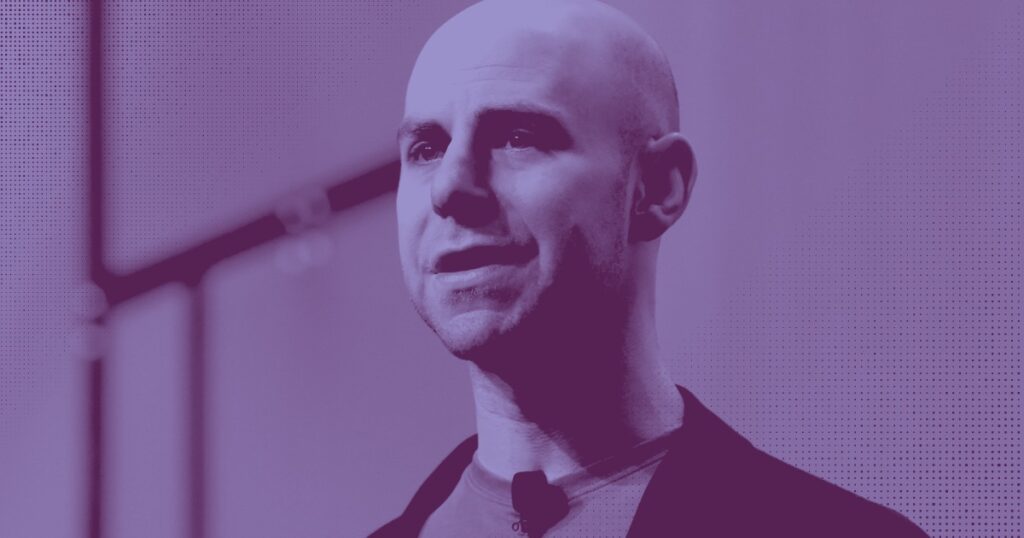Adam Grant on How to Be More Open-minded and Make Better Decisions

Organizational psychologist Adam Grant makes it one of his guiding principles to argue like he’s right but listen like he’s wrong.
And in his most recent book, Think Again, he investigates how to embrace the joy of being wrong, bring nuance to charged conversations, and build workplaces, schools, and communities of lifelong learners. In the process, he challenges what many people see as the virtue of decisiveness.
Why?
He says decisiveness prevents people from learning. If people expect you to act quickly and know the correct answer, it’s too late, and you can’t reverse your decisions. You can’t look back and say, ‘Well, you know what you know? Maybe I should undo that.”
So, how can you cultivate the arguably greater virtue of keeping an open mind?
“Well, I think the first thing is to catch yourself in the mindsets that get in the way of thinking again,” says Grant. “My colleague, Philip Tetlock, wrote a brilliant paper about this two decades ago. And he observed that we spend a lot of time thinking like prosecutors, preachers, and politicians.”
For example, he explains:
- When thinking like a preacher, you’re defending a sacred belief and trying to proselytize it to everyone else.
- When you’re thinking like a prosecutor, you’re trying to win an argument, which means you have to prove the other person wrong.
- And when you’re thinking like a politician, you look a little more flexible. Politicians are trying to campaign for other people’s approval. So you might have an audience who you want to like you, and you might tell them what they want to hear. But you’re just changing what you say, not what you think. And so you’re kind of going along with the tribe instead of pursuing the truth.
Recognizing these characters is the first step to cultivating open-mindedness and making better decisions.
“When you are so sure that you’re right, or somebody else is wrong, or when you’re flip-flopping just to get somebody else’s buy-in, you know that you’re not being honest with yourself or with them,” says Grant.
The second step, he says, is to think like a scientist. Scientists test their hypotheses. They don’t get attached to their ideas as they represent their identity. Instead, they pursue the truth, which requires being open to being wrong.
Adam Grant has spoken at the California, Massachusetts, Pennsylvania, and Texas Conferences for Women. This article is based on his 2021 conversation with CFW’s podcast host Celeste Headle.